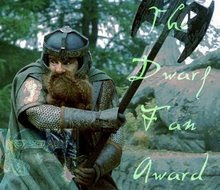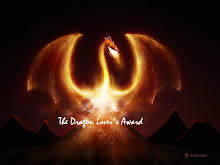
Hey, guys! I regularly go on Yahoo! Answers to answer different questions, and this guy was responding to a pro-evolution question and it blew me away. I quickly copied and pasted it into word. Here it is for your enjoyment...
"
In the past thirty five years, scientists have been stunned to discover that the universe is finely tuned to an incomprehensible precision to support life. For many scientist, this points in a very compelling way toward the existence of an Intelligent Designer. Here are some of the data gathered by scientists, both Christians and non-Christians, that point toward complexity and orderedness at the beginning of the universe:
Stephen Hawkins has calculated that if the rate of the universe's expansion one second after the Big Bang had been smaller by even one part in a hundred thousand million million, the universe would have collapsed into a fireball.
British physicist P.C.W. Davies has concluded that the odds against the initial conditions being suitable for the formation of stars, which are necessary for planets and thus life, is a one followed by at least a thousand billion billion zeros.
Davies also estimated that if the strength of gravity were changed by only one part in 10^100, life could never have developed.
For comparison, there are only 10^80 atoms in the entire known universe. There are about fifty constants and quantities. For example, the amount of usable energy in the universe, the difference in mass between protons and neutrons, the proportion of matter to antimatter. That must be balanced to a mathematically infinitesimal degree for any life to be possible.
For organic life to exist, the fundamental regularities and constants of physics must all have values that together fall into an extremely narrow range. The probability of this perfect calibration happening by chance is so tiny as to be statistically negligible.
Collins puts it well: "When you look from the perspective of a scientist at the universe, it looks as if it knew we were coming. There are fifteen constants...that have precise values. If any of those constants was off by even one part in a million, or in some cases, by one part in a million million, the universe could not have been able to coalesce, there would have been no galaxy, stars, planets or people."
Some have said that it is as if there were a large number of dials that all had to be tuned to within extremely narrow limits, and they were. It seem extremely unlikely that this would happen by chance.
Stephen Hawkins concludes: "The odds against the Big Bang are enormous. I think there are clearly religious implications." Elsewhere he says, "It would be very difficult to explain why the universe would have begun in just this way except as the act of a God who intended to create beings like us."
Astronomers are discovering a whole new dimension of evidence that suggests this astounding world was created, in part, so we could have the adventure of exploring it. As astronomer Guillermo Gonzalez and science philosopher Jay Wesley Richards, who wrote the book "The Privileged Planet," elaborates.
Total eclipse of the sun, which yield a treasure trove of scientific data, can only be viewed from one place in the solar system where there are intelligent beings to view them.
Also, earth's location away from galaxy's center and in the flat plane of the disk provides a particularly privileged vantage point for observing both nearby and distant stars.
Another example, earth provides an excellent position to detect the cosmic background radiation, which is critically important because it contains invaluable information about the properties of the universe when it was very young.
Because our moon is the right size and distance to stabilize Earth's tilt, it helps preserve the deep snow deposits in our polar regions, from which scientist can determine the history of snowfall, temperatures, winds, and the amount of volcanic dust, methane, and carbon dioxide in the atmosphere.
The findings of scientists that our world appears to be designed for discovery have added a compelling new dimension to the evidence for a Creator. And, frankly, their analysis makes sense. The finely tuned universe can compel only one reasonable conclusion, a supernatural agent must be responsible for it.
"
There it is! Amazing, huh?






.jpg)











6 comments:
Wow- that was AMAZING! How can anyone be so narrow-minded as to look at this world, and say 'There is no God'. We give these scientists credit for being intelligent men!
BTW, you're homeschooled? So am I! :)
Yep, I'm home schooled!
AWESOME! I think that is SO cool!!!!
Bekah
Hello!
I would like to throw my two cents on this.
First, the posed question was not pro-evolution: "Does the Intelligent Design hypothesis make any testable predictions? Why or why not?". It is only a question. :)
Then the author of the answer claims some quotes by Stephen Hawking, but they are actaully misquotings. It would be long to post here the complete paragraph, but you can read it on The Brief History of Time, maybe you can borrow it from a local library. The important thing is that he does not believe that the apparent fine tuning implies the existance of a god. He mentions actual theories of multiverses, in which several different universes exist, a few of them with the right conditions for life.
The answer also says that this is the only place to obseve solar eclipses. However, Io, the closest Galilean moon of Jupiter is close enough to produce a total eclipse that would be visible to an hypothetical being in Jupiter. Of course we do not know of life in Jupiter, but the argument does not talk about that.
Even more, as the orbit of our Moon is receding (about 3,8 cm per year), it will be some day far enough as to only produce anular eclipses.
And even if for some reason we did not have solar eclipses, there are other ways of getting the same information about our Sun.
About the location of the Earth in our Solar System and our Galaxy, well, the habitable zones are much wider, specially in our Galaxy.
Read here, for example: http://en.wikipedia.org/wiki/Habitable_zone
Also, the number of galaxies in the universe is very large, at least some hundreds of billions, so it's not so difficult to find at least some of the as able to harbor life.
The point is that it's perfectly reasonable to be here, but we could be in several other places. Maybe other hypothetical inhabitants in other planets around other stars were not lucky enough to get to be intelligent as us, and maybe others did!
About the location of Earth for the detection of the cosmic background radiation, that's not true. Farther from the centre of our galaxy is easier, as is from Pluto.
And even here there are lots of things that are very difficult to detect.
The existance of our Moon is very important but maybe other kind of life could still exist. There are good *natural* reasons, though, for maybe not to be observing us in a different situation. Also, the Moon is receding, so things could get weird in some millions of years.
If it still seems that we have a privileged position, well, asteroids and comets are still a menace for us. We could be hit anytime, and we have been. Some of them have missed us by a little bit a few years ago. (Some of them passed closer than the orbit of the Moon, and even one "bounced" in the top of our atmosphere, just like when throwing planar stones in water!)
Even in this part of out Galaxy we are not safe from nearby passing stars or black holes. Also, a sufficiently nearby star going supernova could wipe out our atmosphere. Our Sun will become a giant star in about 5000 million years from now, maybe engulfing Earth! Even more, we don't seem to be wise enough to really take care of our planet. :(
Summarizing, my argument is that there is no fine tuning. We happen to be here only because it's difficult in other conditions, but they are not so uncommon.
What kinds of planetary systems get to this state with intelligent life? Those resembling a little bit ours, *maybe*. And maybe we are not alone. Even if they are only bacteria, it's life, and that's beautiful. :D
Well, I hope my comments be useful to you. Note that I make no claim against the existance of a deity.
However, I think that it's good for believers to get these facts straight. Remember that science does not reject the existance of deities. Individual scientists can have their opinions or beliefs, and independant of their position and fame, they remain being the same. Science is a method: it only asks for evidence of claims and analyzes it.
Cheers!
Hey, David! Thanks for leaving a comment. Even if you believe there is a deity or not, I appreciate you commenting on my post. Thanks for the pointing out of the mis-quotes. In order for them to be quotes, you got to get them right ;)
Thanks!
Hi Josh!
I am very happy you find my comments useful.
I immensely appreciate your openness to criticism!
I would also like to make a correction of my own answer: when I mentioned "actual theories of multiverses" I meant that they are decently good ideas under consideration, but they are mostly physical models that need both more development and a solid way to put them to the test, this is, they should be able to make verifiable (observable, measurable) predictions with them. Otherwise, they will not be proper theories.
Cheers and thank you!
Post a Comment